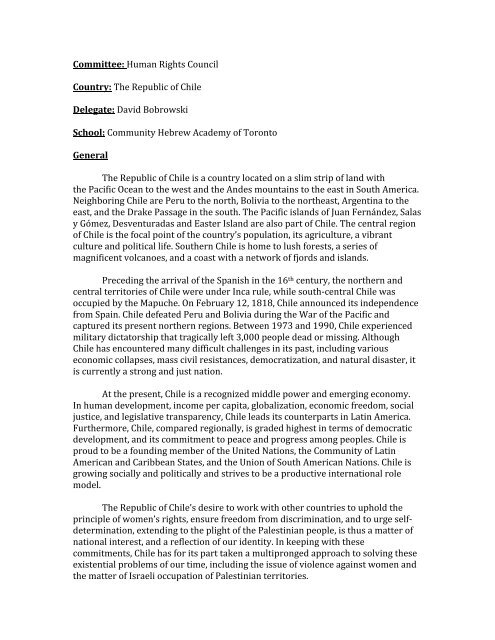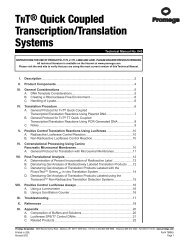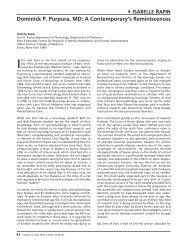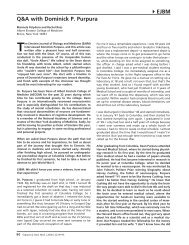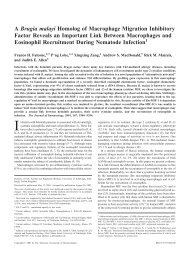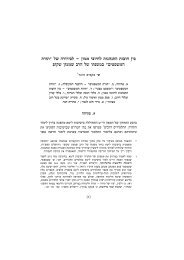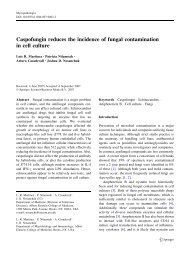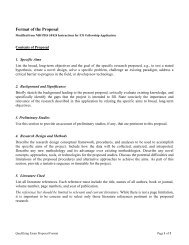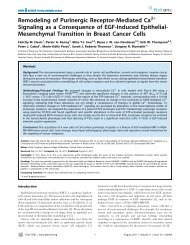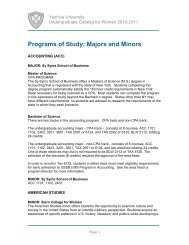David Brobrowski Model UN 2nd position paper chile
David Brobrowski Model UN 2nd position paper chile
David Brobrowski Model UN 2nd position paper chile
- No tags were found...
You also want an ePaper? Increase the reach of your titles
YUMPU automatically turns print PDFs into web optimized ePapers that Google loves.
Committee: Human Rights Council Country: The Republic of Chile Delegate: <strong>David</strong> Bobrowski School: Community Hebrew Academy of Toronto General The Republic of Chile is a country located on a slim strip of land with the Pacific Ocean to the west and the Andes mountains to the east in South America. Neighboring Chile are Peru to the north, Bolivia to the northeast, Argentina to the east, and the Drake Passage in the south. The Pacific islands of Juan Fernández, Salas y Gómez, Desventuradas and Easter Island are also part of Chile. The central region of Chile is the focal point of the country’s population, its agriculture, a vibrant culture and political life. Southern Chile is home to lush forests, a series of magnificent volcanoes, and a coast with a network of fjords and islands. Preceding the arrival of the Spanish in the 16 th century, the northern and central territories of Chile were under Inca rule, while south-‐central Chile was occupied by the Mapuche. On February 12, 1818, Chile announced its independence from Spain. Chile defeated Peru and Bolivia during the War of the Pacific and captured its present northern regions. Between 1973 and 1990, Chile experienced military dictatorship that tragically left 3,000 people dead or missing. Although Chile has encountered many difficult challenges in its past, including various economic collapses, mass civil resistances, democratization, and natural disaster, it is currently a strong and just nation. At the present, Chile is a recognized middle power and emerging economy. In human development, income per capita, globalization, economic freedom, social justice, and legislative transparency, Chile leads its counterparts in Latin America. Furthermore, Chile, compared regionally, is graded highest in terms of democratic development, and its commitment to peace and progress among peoples. Chile is proud to be a founding member of the United Nations, the Community of Latin American and Caribbean States, and the Union of South American Nations. Chile is growing socially and politically and strives to be a productive international role model. The Republic of Chile’s desire to work with other countries to uphold the principle of women’s rights, ensure freedom from discrimination, and to urge self-determination, extending to the plight of the Palestinian people, is thus a matter of national interest, and a reflection of our identity. In keeping with these commitments, Chile has for its part taken a multipronged approach to solving these existential problems of our time, including the issue of violence against women and the matter of Israeli occupation of Palestinian territories.
Topic 1: Honor Killings Violence against women is a plague that affects every country across the globe, and a symptom of this inequality is honor killings. There are approximately 5,000 honor killings reported to take place worldwide every year, and this fact must be brought to light. State institutions often fail to punish the perpetrators of honor killings and this culture of impunity which serves to whitewash aggressive acts by raising philosophic issues or religious beliefs misses the essence of human dignity. According to international laws and regulations, it is the responsibility of the State to safeguard the rights and equality of women and to prevent and protect them from such brutal and chauvinistic attacks. The Republic of Chile has introduced a number of legal proposals and bills of law to prevent and penalize gender-‐driven violence, based on the conviction that one of the fundamental problems that victims must overcome is an inadequate legal response. Chile is an advocate of such reform and is in a process of establishing an ethical and forceful set of legislative guidelines to combat hostility towards women. It is a matter of fact that, as far back as 1923, at the Fifth International Conference of American States, held in Santiago, Chile, the consensus of opinion stipulated that every programme that the organization develops should be directed towards the eradication of constitutional and legal provisions that deprived women of legal capacity. A study undertaken by the legal team of the Center for the Treatment of Domestic Violence of the Municipality of Santiago, Chile, confirmed that penal and legal procedures are indeed very effective in preventing violent acts against women. The examination under reference specifically found that in 72.5% of cases aggressors in these circumstances of gender specific violence who were informed that they were being investigated by police ceased all such criminal acts. The Latin American Committee in Defense of Women's Rights has organized seminars and debates and published studies analyzing family legislation, and constitutional laws and human rights, while considering the special interests of women. With offices in more than 10 countries of the region, this humanitarian organization has done a great deal to resolve gender-‐based brutality and advance national and provincial-level projects and programmes with a view to social and economic stability. That is to say, with these steps to eliminate female prejudice, Chile hopes to gain the advantage of engaging the skills and intellectual gifts of an entire population, both men and women, and assuring that egregious acts such as honor killings cease to discriminate against this common good. Due to the multi-‐dimensional character of gender-‐based violence, Chile has begun an extensive campaign of awareness intended to inform people at the national, local and community level by supporting the joint efforts of government bodies, women’s organizations, and non-‐governmental institutes. The implementation of this effort coordinates the health, justice, police and education sectors, in order that the changing face of our society be flexibly addressed. This is key in preventing violence against women, and particularly in addressing extreme
cases of honor killings as an aberration from an established social norm. From this point of view, it should be appreciated that judges in Chile have as a matter of course ordered aggressors to undergo psychological therapy to promote the concept of rehabilitation, to prevent recurrences of misogyny, and eventually to establish a climate of respect and tolerance. It is believed that abusive conduct toward women is learned, particularly when it is supported by society, and that self-‐help groups, individual therapy, and a mandated program of education can catalyze a process of resocialization. These corrective measures can bring about gender equality, stop attacks on women, and totally discredit the heinous act of honor killing. Chile legalized divorce in 2004, and is also one of the only countries to have elected a female president in the person of Madam Michele Bachelet, who served from 2006-‐2010. A bill was passed in 2007 to give mothers direct access to child support payments. Legislation to support childcare was passed in 1994, and Chile offers 100% paid maternity leave for women working in the formal sector. Postnatal maternity leave is now six months and woman are allowed a one-‐hour feeding break each day until the child has reached the age of two. Woman’s literacy rates are compatible with those of men, with 95.6% of women being able to read and write. Chilean law has specifically mandated compulsory primary education for children of both sexes. In 2007, the World Bank declared that enrolment levels of both boys and girls at the primary and secondary stages of education were at parity. Indeed in 2002, women had attendance rates compatible with men as far as higher education is concerned, gauged at 47.5% of the population. As of 2011, 47% of Chilean women were employed, and 15% of Chile’s Chamber of Deputies has been made up of female representatives. The National Women’s Service (Servicio Nacional delaMujer, SERNAM) created in 1991 has been specific in its efforts to establish a program to aid female heads of households, prevent violence against women, and establish a network of information centers focused on the issue of women’s rights. This political structure was established by law and is a permanent part Chile’s state identity. It has been augmented by centers of research in the private sector, including the Centro de Estudios delaMujer (The Woman’s Study Center) and La Morada, all directed towards increasing women’s political participation. We are proud that Chile has ratified the United Nation’s Convention on the Elimination of All Forms of Discrimination Against Women in 1988, and that Chile’s mission as part of the <strong>UN</strong> embodies a commitment to democracy and human rights from the perspective of gender. There is no question that domestic violence in Chile has been a serious issue, especially among the poor. A 2004 SERNAM study reported that 50% of married women suffered spousal abuse, with 34% reporting physical violence and 16% psychological abuse. The intrafamily violence law passed in 1994 was attended to address these concerns, as was the aforementioned legalization of divorce, and a 2005 law against sexual harassment. Rape, including spousal rape, is a criminal offense punishable with up to 15 years of imprisonment, and honor killing is a
capital crime. With all of these efforts, Chile has complied with and supported the equality, safety and security for women Topic 2: Palestinian Human Rights Approximately 350,000 Palestinian immigrants and their descendants reside in Chile and 10 percent of the Chilean senate is of Palestinian descent. It is for this reason that Chile has a unique perspective on the Palestinian question. Chile understands that the Palestinian people have been displaced, just as the Jewish people had been relegated to a Diaspora. Chile recognizes both Israel and Palestine as independent states and is optimistic that a process of mutual cooperation, respect, and eventual friendship can result in a stable peace. At the same time, Chile cannot ignore the grave human rights violations that have become a routine part of the Israeli Occupied of Palestinian Territory, including East Jerusalem, and it is this insight that governs our policy and perspective. Chile firmly believes that the Palestinian people have the inalienable right to establish their own sovereign, democratic, and independent State, in which citizens live in justice, freedom, and pride, and in partnership with their neighbors. Chile supports the concept of a two State solution, with Israel and Palestine existing harmoniously and securely together. This goal can be achieved if both parties involved demonstrate mutual respect for the peace process, and if Israel demonstrates the courage to return to its 1967 boarders, as stipulated by an international consensus. While Chile is sensitive to the security needs of the Israeli people, let there be no question that Chile calls upon Israel to end the significant human rights violations that are implicit as a part of its occupation of Palestinian Territory. Chile views the building of new housing units in the Occupied Palestinian Territory as an impediment to peace and as a roadblock to the current efforts of the international community as stipulated in the road map to a two state solution supported by the great powers. Chile calls upon the Government of Israel to halt all construction projects currently underway and to immediately stop the illegal demolition of large numbers of Palestinian residences in East Jerusalem. As a matter of conscience, Israel must take serious measures to guarantee the protection of Palestinian civilians and property by confiscating weapons from Israeli settlers and others who would seek to terrorize an indigenous population. Israel must refrain from conducting military operations in Occupied Territory and abstain from targeting civilians. As a matter of good faith, we feel that Israel should release Palestinian prisoners, particularly women, children, and members of the Palestinian Legislative Council. The excavation of the lands in the vicinity of the Al-‐Aqsa mosque and other religious institutions must cease as a matter of respect and tolerance. Israel at the same time should lift the siege and travel restrictions imposed on the Gaza Strip, particularly at the Karni and Rafah crossings, so that the passage of foodstuffs and essential supplies into Gaza will allow normal life to resume. All of these measures
taken as a whole will build confidence and the Palestinian people to reciprocate one good for another, to the benefit of both Jews and Arabs and the would at large. Chile is not an enemy of Israel and it is a matter of fact that the government of Chile seeks to maintain its bonds with the Israeli people. Since 1953 Israel and Chile have signed numerous bilateral agreements, including an accord on cultural exchange (1953), scientific and technical cooperation (1965), economic cooperation (1982), tourist cooperation (1986), cultural, scientific, and technical cooperation (1995), and a memorandum of understanding on the establishment of bilateral consultations between the ministries of foreign affairs of Chile and Israel (2007). The meeting between Israeli Prime Minister Benjamin Netanyahu and President Sebastian Pinera in Israel for the signing of a free trade agreement between our two counties in October 2010 marked a mile stone in a long history of cooperation, particularly between our ministry of defense and its Israeli counterpart that dates to 1988, and the Chilean government’s refusal to sell F5 fighter jets to Iran. It is this close cooperation, as evidenced by the Israel governments support for Chile following the 2010 earthquake, that gives both parties the right to criticize one another in the manner of friends who wish each other well. With the joint action of the international community and the readiness of the Israeli and the Palestinian people to achieve a resolution to this long fought conflict, Chile is confident that a mutually beneficial agreement can evolve and that peace can be established, and lives spared. Chile will continue to maintain close relations with Israel and with the Palestinians in the hopes of achieving the objectives it has laid out for the good of all. Bibliography"Central Intelligence Agency." CIA. Central Intelligence Agency, 5 Dec. 2012. Web. 16 Dec.2012. ."Chile." U.S. Department of State. U.S. Department of State, n.d. Web. 24 Dec. 2012.."Chile (12/16/11)." U.S. Department of State. U.S. Department of State, 16 Dec. 2011. Web. 16Dec. 2012. ."Chile Country Profile." BBC News. BBC, 14 Aug. 2012. Web. 16 Dec. 2012..
"Chile Recognises Palestinian State." Aljazeera. N.p., 8 Jan. 2011. Web. 2 Dec. 2012.."Embajada De Chile En Israel." Embajada De Chile En Israel Agreements and TreatiesComments. N.p., n.d. Web. 24 Dec. 2012. .Familias, Pater. "Encyclopedia: Honour Killing." NationMaster.com. NationMaster, n.d. Web.16 Dec. 2012. ."Global Research." <strong>UN</strong> Human Rights Council Adopts Five Resolutions Against Israel. GlobalResearch, 16 Mar. 2010. Web. 16 Dec. 2012. ."Human Rights and Cultural Diversity." United Nations. N.p., 5 Aug. 2000. Web. 14 Dec. 2012.."Impunity for Domestic Violence, ‘honour Killings’ Cannot Continue – <strong>UN</strong> Official." <strong>UN</strong> NewsCenter. <strong>UN</strong>, 04 Mar. 2010. Web. 16 Dec. 2012..Mayell, Hillary. "Thousands of Women Killed for Family "Honor"" National Geographic.National Geographic Society, 12 Feb. 2012. Web. 16 Dec. 2012..Medzini, Ronen. "Chile Recognizes Palestinian State." Ynet. N.p., 1 Aug. 2011. Web. 16 Dec.2012. ."Palestinians Protest in Chile against Gaza Violence." The Cambodian Herald. PEN MEDIAGROUP, 18 Nov. 2012. Web. 1 Dec. 2012..
Rico, Nieves. "GENDER-BASED VIOLENCE: A HUMAN RIGHTS ISSUE." ECLAC. N.p.,n.d. Web. 12 Dec. 2012..Sanghani, Radhika. "Strong Unanimous Support for the Palestine People from the ChileanSenate." MercoPress. Santiago Times, 14 Aug. 2010. Web. 16 Dec. 2012.."The Universal Declaration of Human Rights, UDHR, Declaration of Human Rights, HumanRights Declaration, Human Rights Charter, The Un and Human Rights." <strong>UN</strong> NewsCenter. <strong>UN</strong>, n.d. Web. 16 Dec. 2012.."<strong>UN</strong>RISD's Contribution to the Fourth World Conference on Women." United Nations ResearchInstitute for Social Development. United Nations, n.d. Web. 16 Dec. 2012.."World Databank." World Databank. N.p., 31 Oct. 2012. Web. 16 Dec. 2012..


